Changing professions – why would a sparky become a ringer?
Host: Liveringa Station
Written by Glenn Staines (‘Woodrow’) – Ringer, Liveringa Station.
At Liveringa this year we have eight ‘ringers’ (station hands) including the Head Stockman, who spend a good deal of the ‘season’ (period of time it is possible/viable to process the cattle) out at either Hardman’s or MacCreas stock camps. Over the next three days, we will hear from three of them.
– Karen
Commonly, a question asked to me by visitors to the station, is often the same as a conversation starter. What is a fully qualified electrician doing running around chasing cattle in the Kimberley? I never really know a good way to answer that because it is a bit hard to explain: why you would voluntarily go and consistently put yourself in an occupation that requires you to bring in a mob of a thousand cattle, run them through the yards and draft (sort) them: putting them all into different yards.
At times this can become boring and rather repetitive, but that can be quickly turned around by the fact that you now have the brand new challenge of trying to tell an eight year old clean skin (un-branded) bull that has never even seen people before, that he has to go around an obstacle course of yards without you getting hurt and push him right to the front through a race to decide what happens to him.
There are also cranky old cows that will not hesitate in charging you and knocking you over when you are not expecting it just to ensure that you are staying on your toes. Of course this not an everyday occurrence but when dealing with numbers like this, you are bound to get some un-happy customers that just generally aren’t thrilled about the idea, and could think of better things to be doing considering it’s nearly 40 degrees.
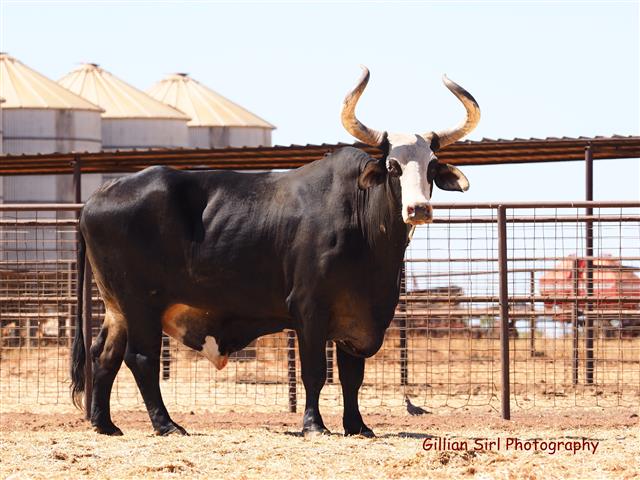 An example of an 18 year old, stubborn, and slightly cranky bullock – he consistently jumps the fence to avoid the yards!
An example of an 18 year old, stubborn, and slightly cranky bullock – he consistently jumps the fence to avoid the yards!
One thing I have discovered is the more you learn about cattle work the more you realise how much skill is involved. Anyone can walk to the back of a yard and wave their hands around and yell and hope the cows move where you want them to, but it is a real skill to learn how to move cattle in every situation and consistently. It is important that we quickly develop this skill because to be quite honest, there is not enough time in the day to not be good or efficient at your job because if you aren’t, it just won’t get done!
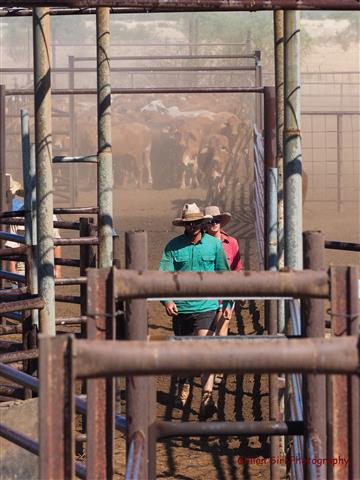 Ringers Rachele and Glenn working in the yards.
Ringers Rachele and Glenn working in the yards.
Another element we deal with is horses. These are not the everyday horses that get spoilt with apples and have only had the one owner their whole life; these are station horses. Can you imagine how frustrating it would be to have a new person try to ride you every year and try and tell you what to do in a different situation in a different way? I imagine it would not be easy – but they tolerate it because they love the job they do. They go to work just as we do and love every minute of it. All they know is moving cows and most are very good at it.
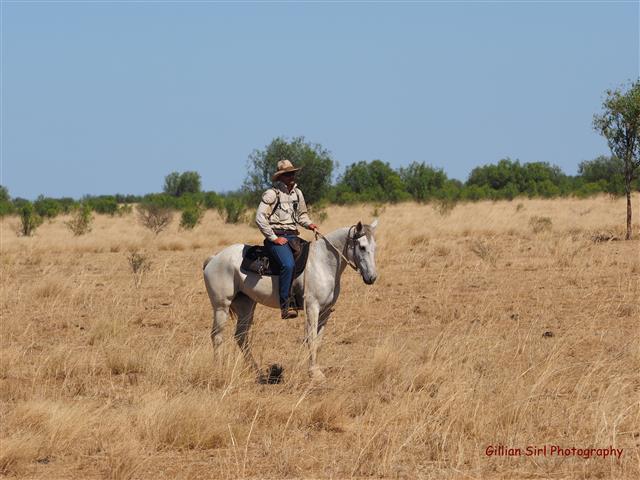 Glenn on one of his camp horses.
Glenn on one of his camp horses.
Of course everyone has their different experience of the horse riding thing – from little things like your horse running away with their nose bag on and not being able to catch him, because quite frankly he thinks that the look of you running after him trying to catch him is rather amusing, to major disagreements like a young horse catching fright and deciding he doesn’t feel comfortable with this whole riding business and having you on his back is not a great idea so he tries his very best to dismount you. When this happens there are generally two choices: look to fall to the ground and get off the bucking horse as quick as you can or pull your hat down and listen to the advice from others yelling encouragement from the sidelines like ‘keep your feet forward’ and ride it out. All in all, horse work is my favourite element of my job and I love every minute of it.
Another element we deal with is other members of the team. It is not easy being a small community and everyone has to try their very best to get along which isn’t always easy! I am in stock camp which involves me spending the majority of my year with the same nine people at camp with no mobile service or TV which can be, at times, frustrating. What other job do you know where you don’t just work nine ’til five with your work colleagues, but you actually work sun up till sun down, share your breakfast, smoko, and lunch, wait in line with them at shower time, then to top it all off, sit with each other again over dinner time?!
There is no break and this can go on for weeks at a time, seven days a week. Something that is done at camp to keep everyone sane is “round the grounds”. This entails everyone having a turn to announce to the group their favourite part of the day. Sounds a bit dorky, but it beats the awkward silence of two people not wanting to talk to each other because of an argument had earlier in the day. After a tough day, it helps everyone to focus on the positives.
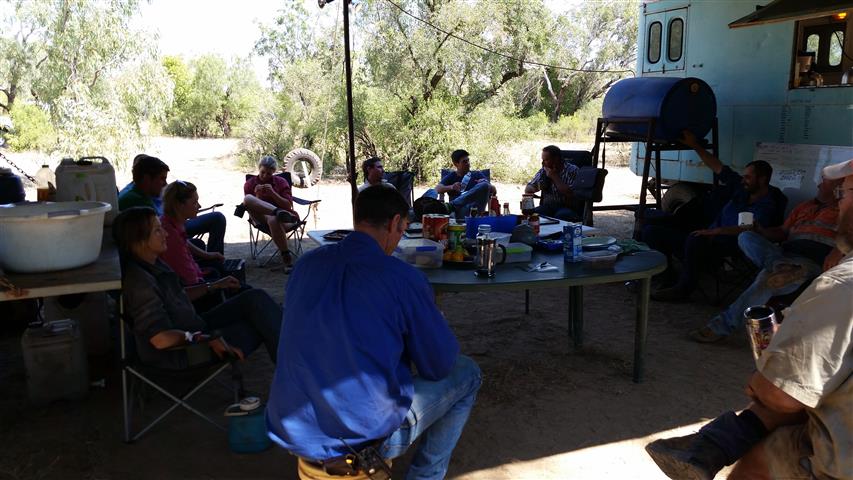 Sitting around at stock camp during a meal break.
Sitting around at stock camp during a meal break.
So back to the original question why are you here? I guess the easiest way to answer is by saying it feels like I haven’t worked a day since I arrived up here. Back home when I work, I work less hours and have more days off; yet I chose to come up here get paid less and work more? I have never heard of anyone saying they went up to be a ringer on a station to earn big money. You do it because you love the lifestyle and love the job. There is no better feeling than settling that mob of cattle that rushed and having to gallop around on your favourite horse to calm the chaos, or getting the cattle through the yards efficiently, or even getting to spend your time with quality people that all have the same interest as you. I especially like finishing a hard day’s work and feeling like I have earnt the right to a beer.
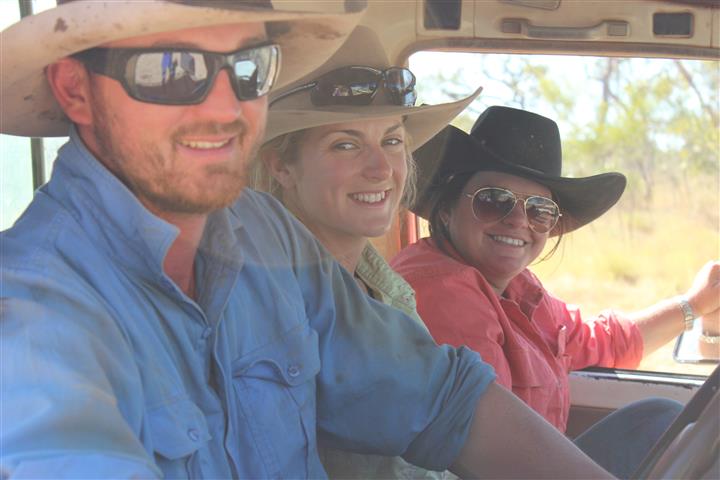 Glenn, Rachele, and Quita on their way home.
Glenn, Rachele, and Quita on their way home.


